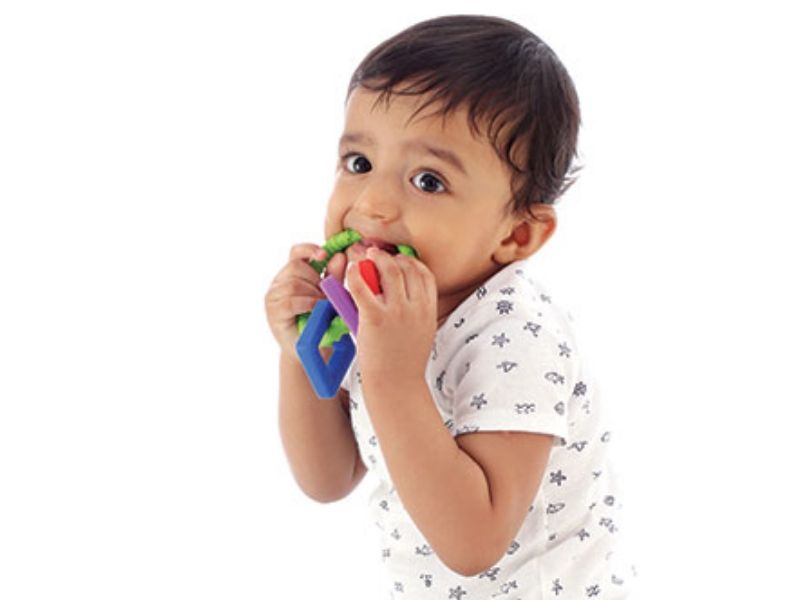Teething aka tooth eruption in infants, is a natural physiological process for which most first-time parents aren’t prepared – Shivani Sharma

Teething aka tooth eruption in infants, is a natural physiological process for which most first-time parents aren’t prepared. Teething generally occurs between six to 24 months of age. As the first primary tooth breaks through the gums, it causes considerable pain making infants irritable. The most common symptoms of teething are:
• Tender, swollen gums
• Fussiness and crying
• Chewing or gnawing all objects in sight
• Excessive drooling (salivation)
• Coughing
• Chin rash
• Changes in eating or sleeping habits
The first teeth to erupt are the front bottom or top ones, followed by the rest of 20 primary teeth. Chewing on teething rings, wet cloth, cold spoon or even a clean finger can help ease the pain of teething. Some infants get very irritable and may also develop slight fever. In such cases, administer mild medication such as paracetamol syrup or oral gel to rub the gums. But before using any medication consult a pediatrician.
A healthy dental regimen for your teething infant begins with wiping her gums with a clean, wet cloth every day to prevent bacterial infection. When the first tooth erupts turning that toothless grin into a toothy one, it’s not yet time to bring out the infant toothbrush. Gums are still tender, so use your finger or a damp, soft washcloth to wipe the new teeth.
Most dentists advise parents to begin using a toothbrush and paste for infants after 18 months. But use only a pea sized amount of low-fluoride toothpaste to brush toddlers’ teeth as adult toothpaste is harmful to young children especially when swallowed. Use only drinking/boiled water for brushing infant teeth as tap water could carry germs.
Easing your infant into an early dental healthcare routine will save you dentists’ bills later on. Here are some infant oral healthcare guidelines.
• Cleaning and brushing teeth removes plaque (the build-up on teeth) that causes tooth decay.
• You can start cleaning your infant’s teeth by wiping with a soft cloth or brushing with a small soft toothbrush and water.
• At 18 months start using a tiny amount of low-fluoride toothpaste. Use circular movements to brush her teeth, one area at a time. Ask your dentist for a demonstration.
• Brush all surfaces of the teeth and gums twice a day (after breakfast and before bed).
• Make brushing teeth a fun exercise and family activity. Parents should brush their teeth the same time as children.
• Ease your toddler into a dental care regimen. She could first brush her doll’s teeth before her own.
• Choose colourful, attractive toothbrushes.
• Try new toothpaste flavours.
• Children love watching themselves in a mirror. Fix a mirror at your toddler’s height so she can watch herself brushing her teeth.
• Visit a pedodentist within six months of the first tooth eruption.
Also read: Healthy habits for all months























